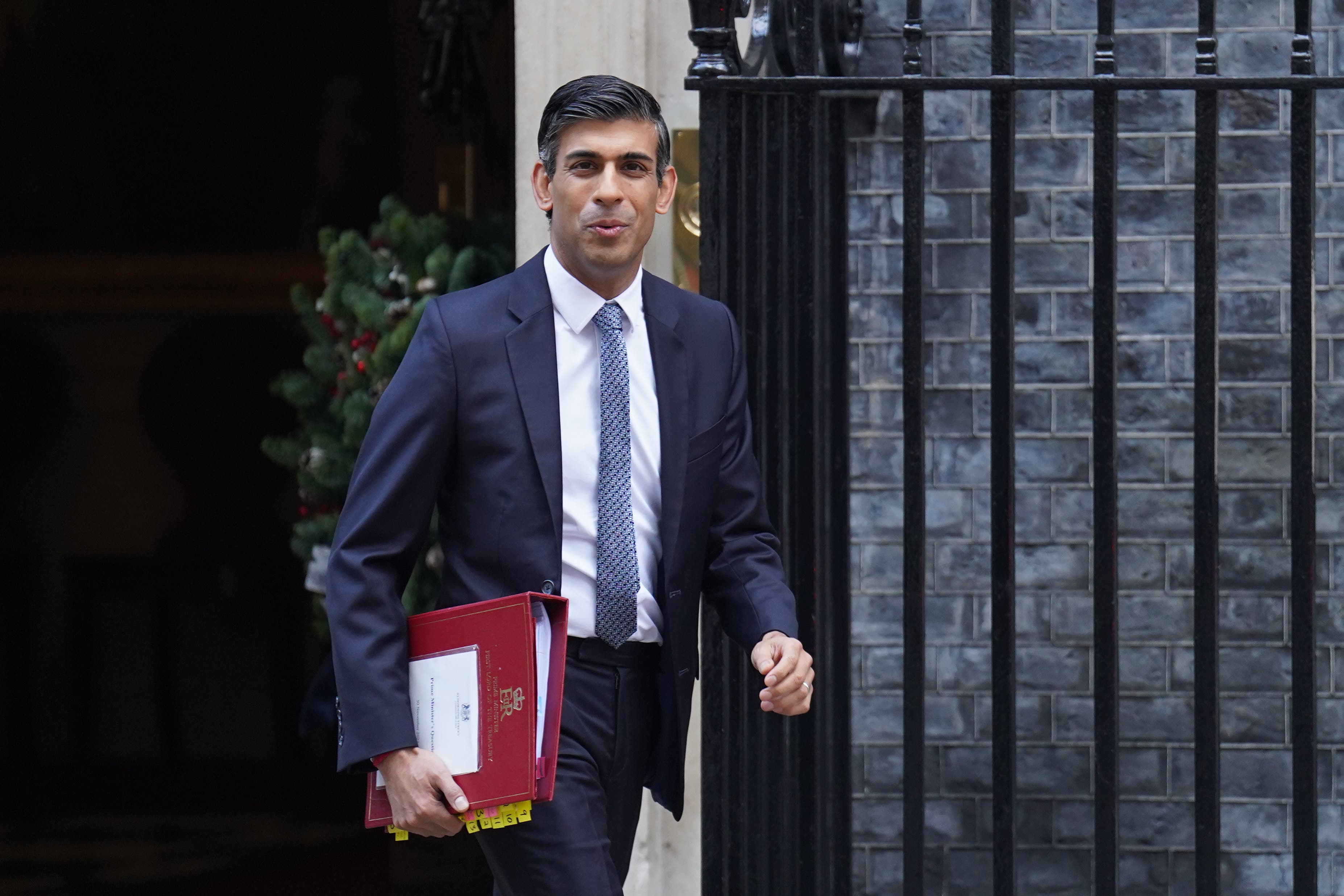Sunak abandons opposition to new onshore windfarms
Communities who host new turbines could pay lower energy bills

Rishi Sunak has staged his second climbdown in as many days to avoid a damaging rebellion by his own MPs, with the government poised to lift the de facto ban on onshore wind.
Ministers are to consult on plans to allow new developments in areas where there is demonstrable local support.
And communities who agree to host them could benefit from lower energy bills.
During the Tory leadership race this summer, Mr Sunak vowed never to “relax the ban on onshore wind in England, instead focusing on building more turbines offshore”.
But he was facing a growing backbench revolt on the issue, including from former Tory prime ministers Boris Johnson and Liz Truss.
Many Tory MPs want the UK to strengthen its energy independence in the wake of Russia’s invasion of Ukraine.
The revolt had been led by Simon Clarke, who served as levelling up secretary in Ms Truss’s ill-fated administration this autumn. He said he was “pleased to see a sensible agreement reached this evening which will enable onshore wind to be delivered while enshrining the vital principle of community consent”.
But the U-turn risks alienating Tory MPs who fear their constituents remain opposed to more wind turbines in their areas.
Onerous planning restrictions have effectively banned new onshore wind developments in England since 2014.
Liberal Democrat energy spokesperson Wera Hobhouse said that if the government had U-turned earlier “families and pensioners up and down the country could have saved money on their bills” this winter “but sadly this is all too late”.
She added that even the climbdown would still leave it “far too difficult” to get onshore wind projects off the ground.
Lisa Nandy, the shadow levelling up secretary, accused Mr Sunak of being “in office but not in power”.
She said the prime minister and the levelling up secretary Michael Gove had been forced into the U-turn “because they’re too weak to stand up to another backbench rebellion”.
She also warned that a “fudge” that would leave severe planning restrictions in place “would continue to deny Britain lower energy bills and improved energy security during an energy crisis”.
Labour has said it would scrap the planning ban as part of its plan to make the UK a clean energy superpower.
On Monday the prime minister ditched compulsory housebuilding targets for local areas, a key plank of his planning reforms, after 60 Tory MPs threatened to vote against the Levelling Up and Regeneration Bill.
The consultation, on changes to the National Planning Policy Framework, will be launched by the government before Christmas. Ministers said it would be concluded by the end of April next year.
Under the government’s proposals landscapes such as national parks, those designated “areas of outstanding natural beauty” and the green belt will still be protected.
Mike Childs, head of policy at Friends of the Earth, said: “The ban on onshore wind should have been lifted years ago.
“We need all the tools we have to tackle the climate and cost of living crises, and cheap, clean and popular wind power has a crucial role to play.
“Rishi Sunak must put renewables and energy efficiency at the centre of government policymaking and pull the plug on new gas, coal and oil developments.”
In a statement, the Department for Levelling Up, Housing and Communities (DLUHC) said that the government would launch a consultation “to explore how local authorities demonstrate local support and respond to views of their communities when considering onshore wind development in England”.
It added: “Under the proposals, planning permission would be dependent on a project being able to demonstrate local support and appropriately address any impacts identified by the local community.
“Local authorities would also have to demonstrate their support for certain areas as being suitable for onshore wind, moving away from rigid requirements for sites to be designated in local plans.”






Join our commenting forum
Join thought-provoking conversations, follow other Independent readers and see their replies
Comments